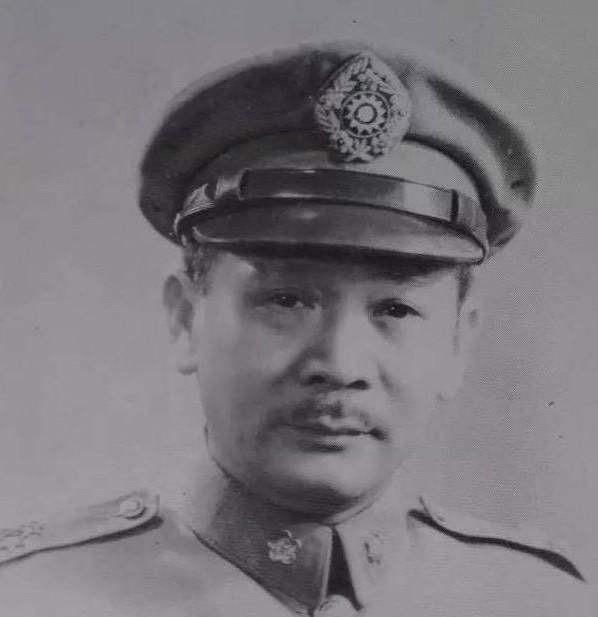There is a very interesting "Oral History", the author Zhang Fakui was the commander-in-chief of the Nationalist Army, and made many intuitive evaluations of contemporaries. For example, Mr. Jiang developed the habit of issuing orders directly, and his interference caused disorder in the chain of command, and he hoped that others would be honest with him, but he himself was not; if I were him, I would either shoot Zhang Xueliang or simply let him go;
Hu Hanmin did have many excellent qualities, but he was not a great man; Song Ziwen regarded the Republic of China as a private property; Bai Chongxi was resourceful but very sinister; Yan Xishan was sleek and cunning; Sun Liren was arrogant and arrogant; Du Yuming was arrogant; and Du Yuesheng was a very friendly, cheerful, friendly, and straightforward person.

On September 2, 1896, Zhang Fakui was born in Xiaoling Village, Sixing County, Shaoguan, Guangdong Province, from a Hakka family, and his father worked as a small official in Yamen. He was 8 years old to study in private school, at the age of 11 was admitted to the county higher primary school, because the same swimming classmates drowned in the river, was expelled from the school, went to Guangzhou as a textile apprentice. Subsequently, he studied in Guangdong LuXiao, often named Sun Shan, and later joined the League, became diligent and good at asking questions, and a thesis of Wu Qi's soldiers moved the whole school and recommended to go to Wuchang Luzhong.
After graduating and returning to the Guangdong Army, he started from a platoon leader, very brave and good at war, was the commander of the Huizhou Offensive Death Squad, and together with Xue Yue and Ye Ting served as the battalion commander of Sun Yat-sen's guard regiment, known as the Three Musketeers. In the Second Crusade, he was the brigade commander of the Independent Brigade, and in Zijin County, he met with more than 10,000 people from the famous general Lin Hubu, he took off his clothes, took a machine gun and shouted: "Throw your old mother, rush with me!" "In the midst of the shouts of losing you, seven positions were breached in succession.
Zhang Fakui, nicknamed the bandit Zhang, was tough and brutal, and during the Northern Expedition, he defeated Sun Chuanfang and served as the commander of the Iron Army, but he was not active in opposing communism, and when he said: "Chiang Kai-shek massacred, Zhu Peide dispatched, Zhang Fakui was taken in." On the eve of the Nanchang Uprising, he held a military conference in Lushan and prepared to move, but was told by others, but he did not succeed. Subsequently, he led his troops south and began a dispute with Li Jishen over the new and old fourth armies.
Once, Wang Jingwei deliberately transferred Li Jishen to a meeting, on November 17, Zhang Fakui and Huang Qixiang took the opportunity to launch a coup d'état in Guangzhou, Li Taiwo was on fire, united with the Gui clan, attacked in two ways, and was fighting, resulting in a fire in the backyard, on December 11, the Guangzhou Communists launched an uprising, Zhang Fakui fled from his residence and went to Japan.
After the September 18 Incident, Zhang Fakui asked to fight Japan several times, but he was unable to make the trip. After the Seventh Seventh, he was anxious, he could no longer serve the country, so he went into the mountains as a monk, and old Jiang said no price, so he participated in the Second Battle of Songhu and the Battle of Wuhan, and later in the frontal battlefield of Guangxi, claiming: "Do your last bit of strength, shed the last drop of blood." ”
At the tactical level, Zhang Fakui was the main recipient of the surrender in Guangzhou, and at the tactical level, he once confessed: "To tell the truth, we have never won a real victory, but only delayed the advance of the enemy." In January 1949, Zhang Fakui and other two old cannons held illusions and supported Li Zongren. At that time, the Hong Kong and British authorities produced a lot of moths, such as restricting the entry of Chinese, which was equivalent to cutting off the back roads of many people.
Lao Zhang was furious, cut off water and food on Hong Kong, mobilized 100,000 young people, and prepared to carry out destructive actions, and the other side was immediately instigated. However, his troops were dealt a devastating blow by the old subordinate Lin Biao. In July, he settled in Hong Kong and lived a public life. On March 10, 1980, Zhang Fakui died of illness in Hong Kong at the age of 84.
He once said: "While the Communists worked hard at the grassroots level, the Kuomintang people were busy climbing up. "For example, the armor protection system is purely in vain, in the past the village chief was the only evil person in the village, and now there are more baochang and jia chief, and China's bad habits are like this, every time a new institution is set up, it is equivalent to opening a door with more opportunities for corruption, as the folk proverb says:
"An incense burner a ghost."